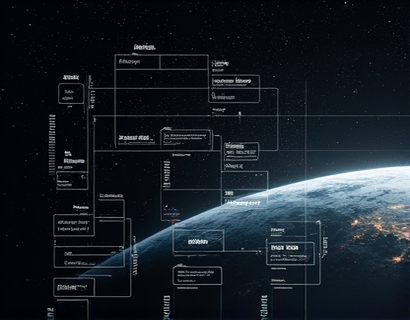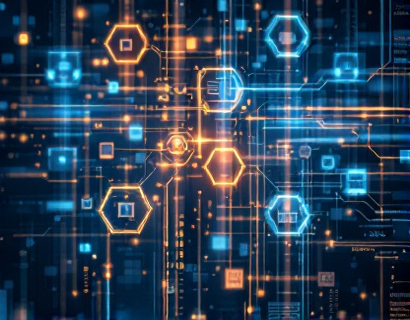Decentralized DAO Management: Leveraging Advanced Software for Enhanced Governance and Data-Driven Insights
In the rapidly evolving landscape of decentralized technologies, Decentralized Autonomous Organizations (DAOs) have emerged as a transformative force, redefining governance and collaboration in digital spaces. However, managing a DAO effectively requires more than just a solid understanding of blockchain and smart contracts. It demands advanced tools and software that can streamline governance processes, provide comprehensive analytics, and facilitate data-driven decision-making. This article delves into how leveraging sophisticated software solutions can significantly enhance the management of DAOs, leading to improved efficiency, transparency, and sustainable growth.
The Need for Advanced DAO Management Software
DAOs operate on the principles of decentralization, autonomy, and community-driven decision-making. While these principles foster innovation and inclusivity, they also introduce complexities in governance and management. Traditional methods of managing DAOs often rely on manual processes, which can be time-consuming, error-prone, and difficult to scale. Advanced software solutions address these challenges by automating routine tasks, providing real-time insights, and ensuring that all members have access to the information they need to make informed decisions.
Streamlining Governance Processes
One of the primary benefits of advanced DAO management software is the ability to streamline governance processes. These tools can automate voting mechanisms, ensuring that proposals are presented, discussed, and voted on in a transparent and fair manner. Automation reduces the risk of human error and manipulation, enhancing the integrity of the governance process. For instance, smart contracts can be integrated to execute voting protocols automatically, providing an immutable record of all decisions made.
Moreover, advanced software can facilitate the creation and management of governance tokens, which are crucial for decentralized decision-making. These tools can track token ownership, manage token distribution, and ensure that only token holders with voting rights can participate in governance activities. This level of precision and control is essential for maintaining the democratic nature of DAOs.
Enhancing Collaboration and Communication
Effective collaboration and communication are the lifeblood of any successful DAO. Advanced management software provides platforms where members can engage in discussions, share ideas, and collaborate on projects in real-time. These platforms often include features such as chat rooms, forums, and document sharing, which foster a sense of community and ensure that all members are aligned and working towards common goals.
Furthermore, these tools can integrate with other decentralized applications (dApps) to create a seamless ecosystem. For example, integrating project management tools with DAO governance platforms allows for a cohesive workflow, where tasks can be assigned, tracked, and completed within the same decentralized environment. This integration not only improves efficiency but also enhances transparency, as all activities are recorded and accessible to all members.
Comprehensive Analytics and Insights
Data-driven decision-making is crucial for the sustainable growth of DAOs. Advanced software solutions offer robust analytics capabilities that provide deep insights into the performance and health of the organization. These analytics tools can track various metrics, such as token economics, membership engagement, and project progress, offering a comprehensive view of the DAO's operations.
For instance, dashboards can be customized to display real-time data on key performance indicators (KPIs), allowing administrators to monitor the DAO's performance at a glance. Machine learning algorithms can be employed to predict trends and identify potential issues before they become critical. This proactive approach enables DAOs to make informed decisions, optimize resource allocation, and adapt to changing conditions in the decentralized ecosystem.
Fostering Transparency and Trust
Transparency is a cornerstone of DAO governance, and advanced management software plays a vital role in maintaining this principle. By providing a centralized and immutable record of all transactions, decisions, and activities, these tools ensure that all members have access to the same information. This level of transparency builds trust among members and stakeholders, reducing the risk of conflicts and misunderstandings.
Blockchain-based logging and reporting features ensure that every action taken within the DAO is recorded and verifiable. This not only enhances accountability but also makes it easier to audit and comply with regulatory requirements. Members can independently verify the accuracy of the data, fostering a culture of trust and integrity within the organization.
Scalability and Flexibility
As DAOs grow and evolve, their management requirements become more complex. Advanced software solutions are designed to scale with the organization, handling increasing volumes of data and users without compromising performance. These tools are built with modular architectures, allowing for easy customization and integration of new features as needed.
Flexibility is another key advantage. Advanced DAO management software can adapt to different governance models and organizational structures, making it suitable for a wide range of DAOs, from small community-driven projects to large-scale decentralized enterprises. This adaptability ensures that the software remains relevant and effective, even as the DAO's needs change over time.
Security and Privacy
Security and privacy are paramount in the decentralized world. Advanced management software prioritizes these aspects by implementing robust security measures, such as encryption, multi-factor authentication, and regular security audits. These measures protect sensitive data and prevent unauthorized access, ensuring that the DAO's operations remain secure and confidential.
Privacy features, such as anonymization of user data and controlled access to sensitive information, allow members to maintain their privacy while still benefiting from the transparency of the DAO. This balance between transparency and privacy is crucial for maintaining member trust and compliance with data protection regulations.
Case Studies and Real-World Applications
Several DAOs have successfully implemented advanced management software to enhance their governance and operations. For example, a decentralized finance (DeFi) DAO used a comprehensive analytics platform to monitor token distribution and liquidity pools, leading to more informed lending and borrowing decisions. This data-driven approach resulted in improved portfolio management and increased user trust.
Another instance is a community-driven content platform that leveraged advanced DAO management tools to streamline content creation and moderation. The platform's governance software automated the approval process for new content, ensuring that high-quality contributions were rewarded and low-quality content was swiftly removed. This not only improved the user experience but also fostered a more engaged and productive community.
Challenges and Considerations
While the benefits of advanced DAO management software are clear, there are challenges and considerations that organizations should be aware of. One major challenge is the learning curve associated with adopting new technologies. Members and administrators need to be trained to effectively use these tools, which requires time and resources.
Another consideration is the potential for over-reliance on technology. While automation and analytics are powerful, they should complement human judgment and decision-making. It's essential to maintain a balance between technological efficiency and the human element of governance.
Additionally, the choice of software should be based on the specific needs and goals of the DAO. Not all tools are one-size-fits-all, and what works for one organization may not be suitable for another. Conducting thorough research and possibly piloting different solutions can help in selecting the right tools for the job.
Conclusion
Leveraging advanced software for DAO management is not just a trend but a necessity in the modern decentralized landscape. By streamlining governance processes, enhancing collaboration, providing comprehensive analytics, and fostering transparency, these tools enable DAOs to operate more efficiently and make data-driven decisions. As the decentralized ecosystem continues to grow, the importance of robust management solutions will only increase. Organizations that embrace these technologies will be better positioned to achieve sustainable growth and realize the full potential of decentralized governance.










































